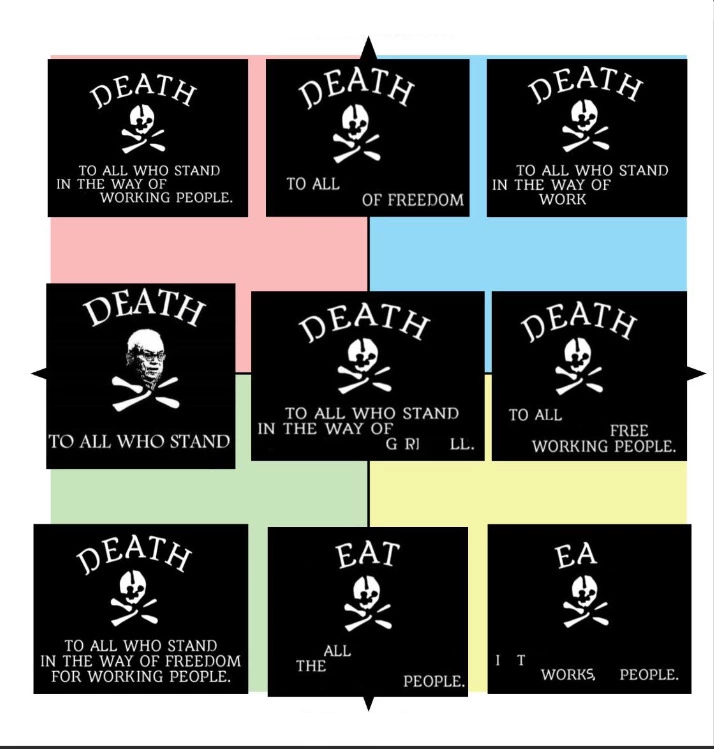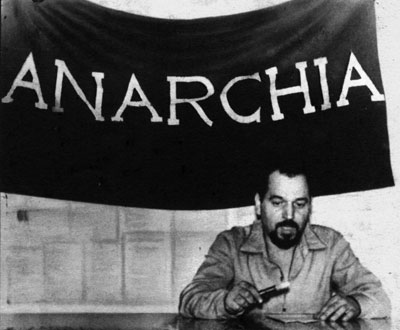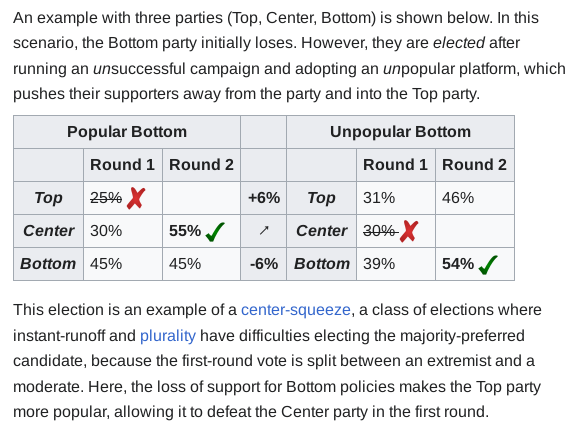Background: What led to the strategies of cooperation under especifismo?
So here's its understanding of the conditions that led to especifismo.
During the German and Spanish revolution, there were largely three approaches to cooperation against the fascists. All of them were considered disastrous to some degree, but for different reasons and with different lessons. For those familiar with the Popular Front, the United Proletarian Front, and the communist alliance, feel free to skip to the next section.
Even if you are familiar though, please consider reading through this so that it may be corrected where it has made any errors!
The left-Republicans and the Comintern under Stalin agreed on a strategy known as the Popular Front, a class collaborative strategy in which progressive bourgeoisie and radical proletarians would fight together against fascists. Today, it would be an understatement to say that this strategy is not approved of by socialists. The Popular Front widely led to
- massacres of workers and anarchists by both the bourgeoisie and Stalinist parties,
- sabotage of organized defenses by the bourgeoisie,
- heavily traumatizing abusive relationships forming between the bourgeoisie and the anarchists who gave in to being "militarized" by the bourgeoisie,
and in general, acquiescence to the Popular Front is typically considered the beginning of the end.
On the other end were specific tendencies among historical materialist-style communists (henceforth histcom). These histcom tendencies were largely distinguished by their opposition to the other prominent histcom tendency of the time, Leninism. These histcoms would come to be known as left-communists, and they advocated alliance with others who shared their political priorities, which is to say revolutionary communism.
Finally, on neither end, one could find Leon Trotsky and the Trotskyists, Armando Borghi and the anarchist Italian Syndicalist Union, and anarcho-communist Errico Malatesta calling for a United Proletarian Front. Because anarchists and Trotskyists were politically smaller groups, the goal was to insert their political organizations into broader proletarian social movements and proletarian political parties, including the social democrats who were still wiping their hands clean of workers' blood and were expected to betray the workers again.
Such a risky strategy required a great deal of care. The goal was defensive, having a large enough mass of labor and skill to combat fascism, and offensive, converting the rank-and-file of less revolutionary or less anarchist organizations towards revolution. This would undermine reformism, if it succeeded, which it did not.
Today, both anarchists and Trotskyists believe that the United Front was the most correct approach. A significant difference is that anarchists emphasize experimenting with variants of the United Front that address its weaknesses.
Enter, the development of especifismo by the Uruguayan Anarchist Federation.
More background: How does cooperation work under the especifismo organizational strategy?
Especifismo is the strategy of having a specific anarchist organization, henceforth SAO, which maintains a general political line. This organization is led by the broad social movements that arise, sometimes because of SAO actions, and sometimes independently of them. The SAO provides resources for mass movements, which in turn can bring members of the mass movement into the SAO who can then provide further resources from the general political line of the SAO.
For those familiar with how especifismo formed strategies drawn from the United Proletarian Front, feel free to skip to the next section. But like before, it would appreciate thorough readers who are able to provide correction. :)
After a great deal of analysis of the United Proletarian Front, the Uruguayan Anarchist Federation emphasized a need to form alliances in social movements on the basis of both a strong subjective and objective analysis. That is, of the political, ideological, and cultural structures of society, and of the social, economic, material basis of society. A strong grasp of both would determine what alliances are appropriate and when.
As an example, one strategy is that of an intermediate organization. The SAO can form a caucus in other political organizations which are directly tied to some social movement. So a specific anarchist organization whose program is anti-abuse and anti-racist can allocate several of their members to joining their local Queers for Palestine chapter, calling out abuse and providing anti-abuse resources which can bring others in those chapters into alliance with them. Should those people learn more and accept the program of the SAO, they can join the SAO.
Another strategy is to have fronts which engage with some particular social movement. Say, by creating a front for working with tenants such as a tenants' union supported by the SAO.
This ensures that
- the long-term goal of the SAO isn't corrupted by liberalism or reformism or reactionaryism,
- that the well-established structural analysis of the SAO isn't eroded, and
- that the general strategy and program of the SAO remains informed by the SAO's long-term goal and structural analysis.
Furthermore, because the SAO does not impose its political line on a social movement and always seeks to support ongoing social movements however they can within the confines of the general strategy, this ensures that
- the SAO is flexible and always listens to the vulnerable and marginalized who are fighting for their needs, and
- the SAO is constantly engaging with social movements and so makes their presence known to interested members of those social movments.
Critique: Doubling down on flawed analysis
From "The Specific Anarchist Organisation: The Anarchist Organisation", summarized below:
the specific anarchist organisations uses, both for its internal and external functioning, the logic of what we call "concentric circles"...the concentric circles seek to resolve an important paradox: the anarchist organisation needs to be closed enough to have prepared, committed and politically aligned militants, and open enough to draw in new militants.
....
In practice the logic of concentric circles is established as follows. Inside the specific anarchist organisation there are only anarchists that, to a greater or lesser extent, are able to elaborate, reproduce and apply the political line of the organisation internally, in the fronts and in public activity.
....
There is not a hierarchy between the circles, but the idea is that the more "inside", or the closer the militant, the better are they able to formulate, understand, reproduce and apply the lines of the organisation. The more "inside" the militant, the greater is their level of commitment and activity...the more they commit, the more they will decide. The less they commit, the less they will decide.
This does not mean that the position of the more committed is of more value than that of the less committed. It means that they participate in different decision-making bodies. For example, those more committed participate with voice and vote in the Congresses, which define the political and strategic lines of the organisation; the less committed do not participate in the Congresses, or only participate as observers, and participate in the monthly assemblies where the tactics and practical applications of the lines are defined.
Here, it sees the especifismo approach as an onion. Have an SAO which members of the social movement can peel the layers of by being increasingly dedicated to it. Once they are highly dedicated, they are provided more decision-making power over the actions of the SAO.
The problem is that this creates a feedback loop. While the structural analysis of an SAO should be very difficult to contradict, the SAO should always be responsive to structures which they are unaware of. If an SAO includes in their structural analysis heteropatriarchy and settler-colonialism as contemporary expressions of the overall system of domination, but no acknowledgment of the sanist institutions of psychiatry and their downstream structures (e.g. suicidism), then the analysis is flawed.
And this flawed analysis can lead to a great deal of chauvinism and abuse in the SAO which needs to be quickly and carefully addressed and remedied. But say that someone who experiences suicidism must first commit themselves to the SAO before being able to provide anything on the level of structural analysis or political or strategic line. This is largely going to select out those who experience suicidism and sanism, and ensure that it doesn't make it into the SAO's structural analysis. Who wants to dedicate themselves to an organization that treats them like shit?
This is a feedback loop. An incomplete analysis will entrench itself deeper and deeper.
Solution: The power to add, not subtract
The outlines of especifismo are correct. It is important to stand with the bulwark against white settler-colonial thought and ensure that the core of the SAO cannot be corrupted. It is also important to be open and flexible, to be anti-chauvinistic, to listen to those in need and be willing to take accountability for when we err and do harm.
But there is a way to prevent both chauvinism and corruption when it comes to the core structural analysis as well. Being trauma-informed, power- and oppression-aware, analysis should yield forms of oppression which are missing from the structural analysis and provide those with experience the power to add to it. A suicidal person who faces suicidism can, without eroding the acknowledgment of white settler-colonialism or heteropatriarchy, add to the SAO's analysis the institution of sanism and psychiatry. The SAO, which may have hitherto been filled with sanist slurs and no militant motivation to smash psychiatry thoroughly and completely, must now evolve its general strategy in light of this addition to the structural analysis.
Summary
Especifismo is a strategy which aims to resolve the paradox of needing to be closed to reactionary elements, but open to movements of revolutionary potential even if they have reactionary elements. To this end, they are fluid on the social level, but firm on the political level.
But firmness on the political level can lead to a feedback loop in which they become increasingly chauvinistic and inaccessible to those most vulnerable. For this reason, there is a need to give individuals who aren't a part of the core SAO the power to add to the core structural analysis of the SAO. To have their experiences centered when they have the most at stake.
Corrections
Here, it will edit in corrections as they are provided should anyone respond. <3






 gets 45% of the vote and isn't elected; but in the other scenario he gets 39% and is elected. What happened is he lost supporters to a rival (Top) who eliminated his other rival (Center) for him, so he was able to sneak in.
gets 45% of the vote and isn't elected; but in the other scenario he gets 39% and is elected. What happened is he lost supporters to a rival (Top) who eliminated his other rival (Center) for him, so he was able to sneak in.
